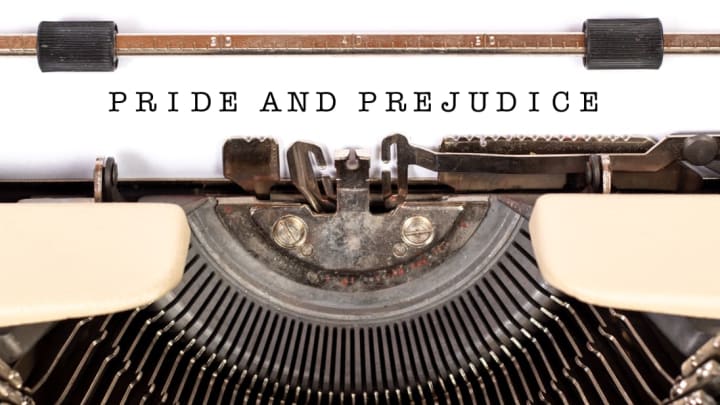Though pride is technically one of the seven deadly sins, nowadays we often tend to interpret it with a much more positive spin; we encourage pride in ourselves, our friends, our kids, our colleagues, etc. In fact, you could make the argument that prejudice is more worthy of deadly-sin status than pride. So if you’re reading Jane Austen’s Pride and Prejudice with the modern-day definitions of those titular words in mind, you might miss some of the takeaways.
As SparkNotes explains, when Jane Austen wrote about pride, she wasn’t talking about someone taking deep pleasure in their talents, specific accomplishments, or intrinsic sense of self-worth; instead, it was much more about comparing yourself to others. In other words, we think of pride in terms of being proud of something or someone. Austen thought of it in terms of just being proud, period. If you were proud, you considered yourself too good to fraternize with those who you perceived as having a lesser standing than you (today, we might use the word arrogant instead). And in England’s starkly hierarchical society, pride was a trait commonly exhibited by those who were born into upper-class families. Mr. Darcy, for example, initially finds it beneath his social stature to consort with the Bennet family because of his wealth, status, and sophistication.
Elizabeth’s pride is one of the reasons she’s such an intriguing heroine, and so often perceived as being ahead of her time. In the early 19th century, when Austen wrote Pride and Prejudice, it was unheard of that a woman in Lizzy's position—namely, largely devoid of wealth or status—would dare to have have such headstrong opinions about whom she would marry, let alone make those thoughts known.
Lizzy was not, however, above prejudice. But unlike how we customarily view prejudice as having a preconceived (and negative) notion about a thing or group, Austen often illustrates her characters as having prejudice for individual people—though not necessarily in a negative way. For example, Elizabeth automatically trusts the easygoing and handsome George Wickham essentially because he’s easygoing and handsome. Similarly, Mr. Collins believes wholly in Lady Catherine de Bourgh's opinions simply because of her socioeconomic status (regardless of whether she's deserving of his respect).
Of course, there’s plenty of prejudice against people, too, but it primarily relates to the prejudice you feel against someone who makes a bad first impression. (Fittingly, Austen originally planned to name the novel First Impressions.) Mr. Darcy’s bad first impression sours the Bennets on him immediately, and the reversal of that prejudice becomes one of the main conflicts throughout the novel, especially for stubborn Elizabeth; if you’ve read Pride and Prejudice—or watched one of its many adaptations—you know how difficult it is for her to admit she misjudged Darcy's character.
Together, each character’s pride, prejudice, or both—and their struggle to overcome that—drives the entire plot of Pride and Prejudice. If Austen had written the novel today, she might have titled it Being Arrogant and Jumping to Conclusions instead.
Mental Floss is partnering with the Paper & Packaging – How Life Unfolds® “15 Pages A Day” reading initiative to make sure that everyone has the opportunity (and time) to take part in The Mental Floss Book Club. It’s easy! Take the pledge at howlifeunfolds.com/15pages.
